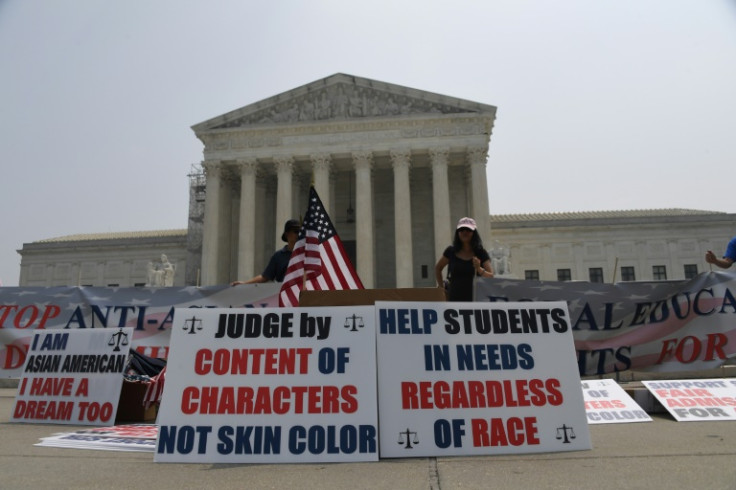US Supreme Court declares that race must not determine University admission
The US Supreme Court has ruled that race should not determine university admissions, promoting a merit-based approach and equal opportunities in higher education.

In a landmark ruling, the Supreme Court has unequivocally declared that race must not be a determining factor in university admissions.
This decision marks a significant milestone in the ongoing debate over affirmative action and sets a precedent for ensuring equal opportunities for all individuals, irrespective of their racial background.
The US Supreme Court's nine justices were debating two arguments involving Harvard and University of North Carolina (UNC) admissions. This issue of affirmative action in university admissions has long been a contentious one, however, with proponents arguing that it is a necessary tool to address historical discrimination and promote diversity on campuses.
Critics, on the other hand, contend that such policies can perpetuate discrimination and undermine the principles of fairness and equal treatment.
The recent Supreme Court ruling reinforces the principles of equal protection under the law and rejects the use of race as a determining factor in university admissions. The court has emphasised that universities must find alternative means to achieve diversity without resorting to explicit racial preferences. This decision aligns with previous rulings that have recognised the value of diversity but have placed limits on the extent to which race can be considered.
Chief Justice John Roberts wrote: "Many universities have for too long wrongly concluded that the touchstone of an individual's identity is not challenges bested, skills built, or lessons learned, but the colour of their skin."
By asserting that race should not be a determining factor, the Supreme Court reaffirms the importance of a merit-based approach in university admissions. This ruling ensures that individuals are evaluated based on their qualifications, achievements, and potential contributions to the academic community rather than their racial or ethnic background.
They have argued that this ruling creates an environment where all students have an equal opportunity to succeed and are judged on their individual merits.
Oppositions to the ruling in the US
While the Supreme Court's ruling asserts that race should not determine university admissions is hailed as a victory for merit-based evaluation, it is not without the potential for backlash. Critics argue that this decision could hinder efforts to address systemic inequalities and perpetuate the underrepresentation of marginalised groups in higher education. They contend that without considering race as a factor, universities may struggle to create diverse learning environments that prepare students for a multicultural society.
Additionally, opponents fear that this ruling may lead to a decrease in the number of underrepresented minority students admitted to universities, further exacerbating existing disparities. The potential backlash to this decision highlights the ongoing complexities and disagreements surrounding affirmative action and the pursuit of educational equity.
US President Joe Biden strongly condemned the Supreme Court's ruling saying: "We cannot let this decision be the last word. The court can render a decision, it cannot change what America stands for." Biden also believes "discrimination still exists in America".
He further stressed the danger of universities abandoning "their commitment to ensure student bodies of diverse backgrounds and experience that reflect all of America", and thus "take into account the adversity a student has overcome when selecting among qualified applicants".
These remarks by the highest office in Washington further feed into an argument about the scrutiny the Supreme Court faces, with it being clear that while the Court plays a crucial role in safeguarding constitutional principles and protecting individual rights, some argue that it may have amassed too much power. This sparks a legitimate debate about whether its influence should be more limited to strike a better balance between judicial authority and democratic governance.
The Supreme Court's ruling affirming that race must not determine university admissions signifies a significant milestone in the ongoing discourse surrounding affirmative action. By emphasising individual qualifications as a more explicit factor in the university admissions process, this ruling may limit racial diversity in higher education and thus question whether the Supreme Court's ruling is one that promotes long-term inclusion or not.
© Copyright IBTimes 2025. All rights reserved.



















